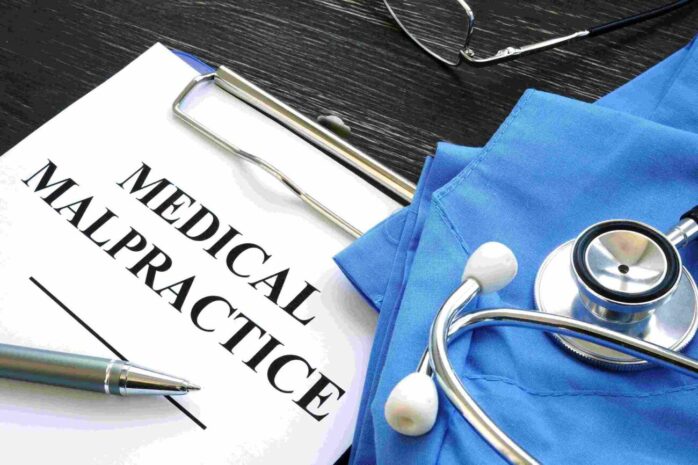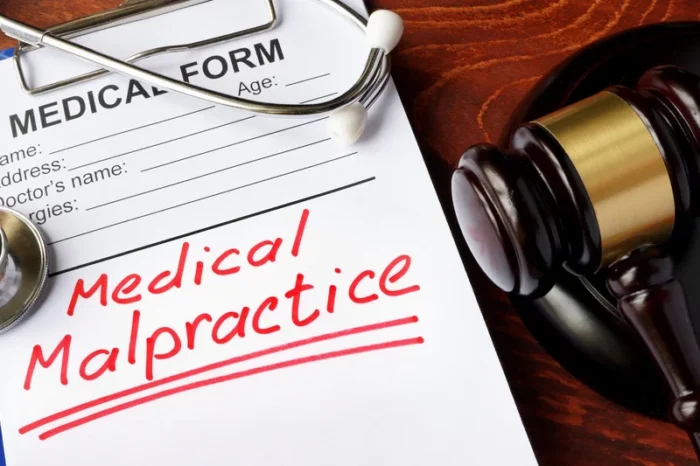
The world of medical malpractice is intricate and multi-faceted. While the medical profession is dedicated to healing and saving lives, it is also a domain where human errors can have profound consequences. These errors can range from minor oversights to major misjudgments, each with its own set of challenges when it comes to seeking justice. For victims, navigating the maze of medical facts, legal procedures, and emotional trauma can be overwhelming.
However, understanding these complexities and fighting for justice becomes significantly more manageable with the right legal guidance. Partnering with an experienced medical malpractice attorney ensures that victims have an advocate who is well-versed in both medical procedures and legal intricacies, offering them the best chance at a favorable outcome.
Decoding the Multifaceted World of Medical Errors

Delving further into the multifaceted world of medical errors reveals the complex nature of these incidents and the critical importance of seeking justice when such negligence occurs.
- Surgical Complications: These encompass a broad spectrum of errors, from unintended damage during surgery to the most harrowing scenarios where surgical instruments are inadvertently left inside a patient’s body. Beyond the immediate health risks posed by surgical complications, they also cast a shadow over the competence and attentiveness of the surgical team. Building a case around surgical errors involves not only proving the physical harm inflicted but also questioning the standards and procedures followed in the operating room.
- Incorrect Diagnoses: Misdiagnoses are distressingly common and can have catastrophic consequences. When a patient is misdiagnosed, they might receive inappropriate treatment or, even more alarmingly, no treatment at all for a potentially life-threatening condition. Establishing a medical malpractice case in these instances often hinges on demonstrating that another competent medical professional would have correctly diagnosed the patient under the same circumstances. It highlights the crucial role of expert opinions and medical evaluations in these cases.
Source: istockphoto.com - Medication Mishaps: Errors related to medications are diverse, ranging from prescribing the wrong medication or dosage to pharmacy mistakes or administering the incorrect drug. These blunders often result from communication breakdowns, a lack of proper checks and balances, or, in some instances, sheer negligence. Medication errors can have severe health implications, making it imperative to hold those responsible accountable for the harm inflicted.
- Inadequate Aftercare: The significance of post-treatment care in a patient’s recovery cannot be overstated. Neglecting proper aftercare or prematurely discharging a patient can lead to complications, slow recovery, or further deterioration of their health. In medical malpractice cases, the quality of aftercare plays a pivotal role in assessing the overall standard of care provided.
- Failure to Inform: Healthcare providers have an ethical and legal obligation to inform patients about potential risks associated with medical procedures or treatments. Failing to do so not only breaches this duty but also denies patients the opportunity to make informed decisions about their health. These cases underscore the importance of transparent and comprehensive communication in the medical field.
Recognizing the intricate web of medical errors underscores the challenges that individuals face when pursuing medical malpractice claims. Given the diverse range of variables involved, from surgical procedures to diagnostic decisions, having an experienced advocate who can navigate this complexity becomes absolutely essential when seeking justice and accountability.
Patient Advocacy: More Than Just Legal Representation

For individuals who have experienced medical malpractice, the emotional and physical consequences can be profound and life-altering. Beyond the immediate health implications, there is often a profound sense of betrayal—a trust that has been irrevocably shattered with the very professionals they relied on for their well-being. In these tumultuous times, the guidance of a seasoned medical malpractice attorney becomes more than just a professional necessity; it becomes a beacon of hope and unwavering advocacy.
An experienced medical malpractice attorney assumes a role that extends well beyond navigating the legal processes and courtroom intricacies. They become a voice for the aggrieved, ensuring that the patient’s narrative is not only presented but resonates with clarity, empathy, and conviction. By staunchly advocating for their client’s rights, these attorneys ensure that the harm and suffering experienced are not merely acknowledged but are also addressed comprehensively. This transforms legal representation into a journey of validation and a resolute pursuit of justice.

Patient advocacy, in this context, represents a holistic approach that encompasses the attorney’s commitment to supporting the physical, emotional, and psychological well-being of their clients. This multifaceted role includes facilitating access to medical experts who can meticulously assess the extent of the damages and potential future care needs. These experts provide critical insights into the medical aspects of the case, reinforcing the attorney’s ability to construct a compelling and evidence-based legal argument.
Furthermore, patient advocacy entails guiding clients through the labyrinth of medical records, bills, and insurance claims. Attorneys help clients make informed decisions about their healthcare and legal options, ensuring that they are well-equipped to navigate the complexities of their situation. In doing so, the attorney becomes a trusted ally, providing a sense of empowerment to clients during what is undeniably a challenging and distressing time.
Ultimately, the overarching goal of patient advocacy is not solely limited to securing rightful compensation. It also encompasses ensuring that the client’s voice is not only heard but profoundly acknowledged, their pain recognized, and their path to recovery supported with compassion, diligence, and unwavering determination.
The Critical Role of Expert Testimonies

In the intricate realm of medical malpractice, the significance of expert testimonies cannot be overstated. These testimonies, delivered by esteemed medical professionals, serve as the bedrock upon which the strength of a legal argument is built. They possess the expertise to evaluate standard medical procedures, enabling them to determine whether a departure from these norms resulted in harm to the patient.
A seasoned medical malpractice attorney recognizes the pivotal role played by expert testimonies and maintains a well-established network of such professionals, each uniquely qualified to offer insights that not only support the case but also enhance its credibility. These experts possess the dual ability to dissect complex medical procedures and convey their findings in a clear, accessible manner, ensuring that judges and jurors comprehend the intricacies of the case.
Moreover, a proficient medical malpractice attorney transcends the boundaries of legal representation. They evolve into staunch advocates for their client’s well-being, acknowledging the emotional and physical toll exacted by medical malpractice. By delivering unwavering support and guidance, these attorneys empower their clients to confront the daunting complexities of their situation with resilience and confidence. In a domain where the stakes are undeniably high, the expertise of a dedicated attorney, complemented by the insights of proficient medical experts, emerges as the linchpin in the quest for justice and rightful compensation.












